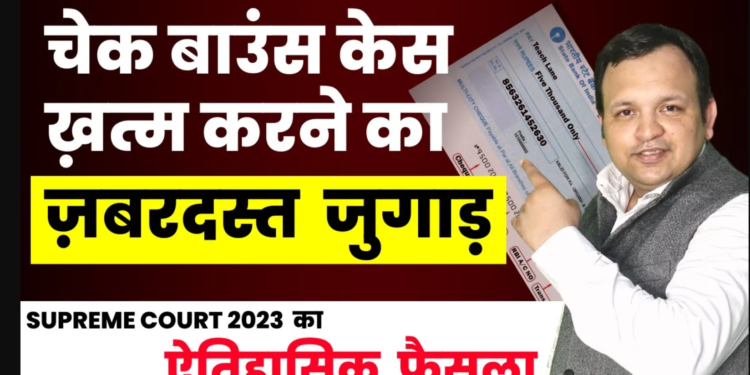Introduction:
Acquittal in a criminal case, particularly in a cheque bounce case, can raise questions about the legal process and the burden of proof. The case of Rajaram v. Marathachalam, which unfolded on January 16, 2023, is a prime example of how acquittals can be contentious, especially in financial transactions. To learn more about the topic, read the blog till the end, and if there lies any more doubt, feel free to reach out to us at; https://thelegalshots.com/legal-opinion/
RAJARAM S/O SRIRAMULU NAIDU (SINCE DECEASED) THROUGH L.RS. vs. MARUTHACHALAM (SINCE DECEASED) THROUGH L.RS, JANUARY 18, 2023
Brief facts of the case:
In this case, the complainant asserted that he earned his livelihood through farming and, from the agricultural income, he had extended a loan of Rs. 3,00,000 to the accused. In repayment, the accused issued a cheque to the complainant. However, when the complainant attempted to deposit the cheque in his bank, he discovered that the accused’s bank account had been closed, rendering the cheque bounce. Subsequently, the complainant sent a legal notice to the accused, demanding payment, but to no avail.
As a result, the complainant filed a complaint against the accused under Section 138 of the Negotiable Instruments Act, of 1881, in a criminal court. During the trial, the court observed that the complainant lacked sufficient proof to establish the lending of Rs. 3 lakh. Consequently, the court acquitted the accused.
Dissatisfied with this decision, the complainant approached the High Court. The High Court, in its ruling, acknowledged that the trial court had made an error by deeming evidence necessary in such a case and reversed the acquittal. The High Court directed the trial proceedings for the accused’s cheque bounce to continue.
In response, the accused appealed to the Supreme Court, arguing that the complainant had failed to provide any evidence demonstrating the lending of Rs. 3,00,000 as a loan. The accused highlighted that there were no documents or income tax returns that substantiated the complainant’s claims.
In contrast, the complainant contended that it was not mandatory to present income tax returns as evidence in this case, and the absence of such records should not be grounds for acquitting the accused.
Final Judgement:
After considering the arguments of both parties, the Supreme Court reviewed its past judgments and provided its reasoning. In the case of Baslingappa v. Mudibasappa (2019), the Supreme Court had laid down certain principles related to this issue.
The Court applied the same principles and specified that the complainant had not presented any documents or income tax returns to substantiate his claims.
Notably, the arguments put forth by the accused were compelling, and an income tax officer was summoned to testify on the matter.
The Supreme Court, by overturning the High Court’s decision, reinstated the acquittal of the accused. The Court held that the complainant failed to provide any documents or evidence to support his claims. In this absence of substantial proof, the accused could not be found guilty.
Conclusion:
This case underscores the importance of proper documentation and evidence in legal proceedings, particularly in cheque bounce cases. The burden of proof lies with the complainant, and without compelling evidence, acquittal may be the likely outcome.
To understand more such complex law in simple ways, stay connected with www.thelegalshots.com .
If doubts still persist, contact our Legal Experts at https://thelegalshots.com/legal-opinion/



